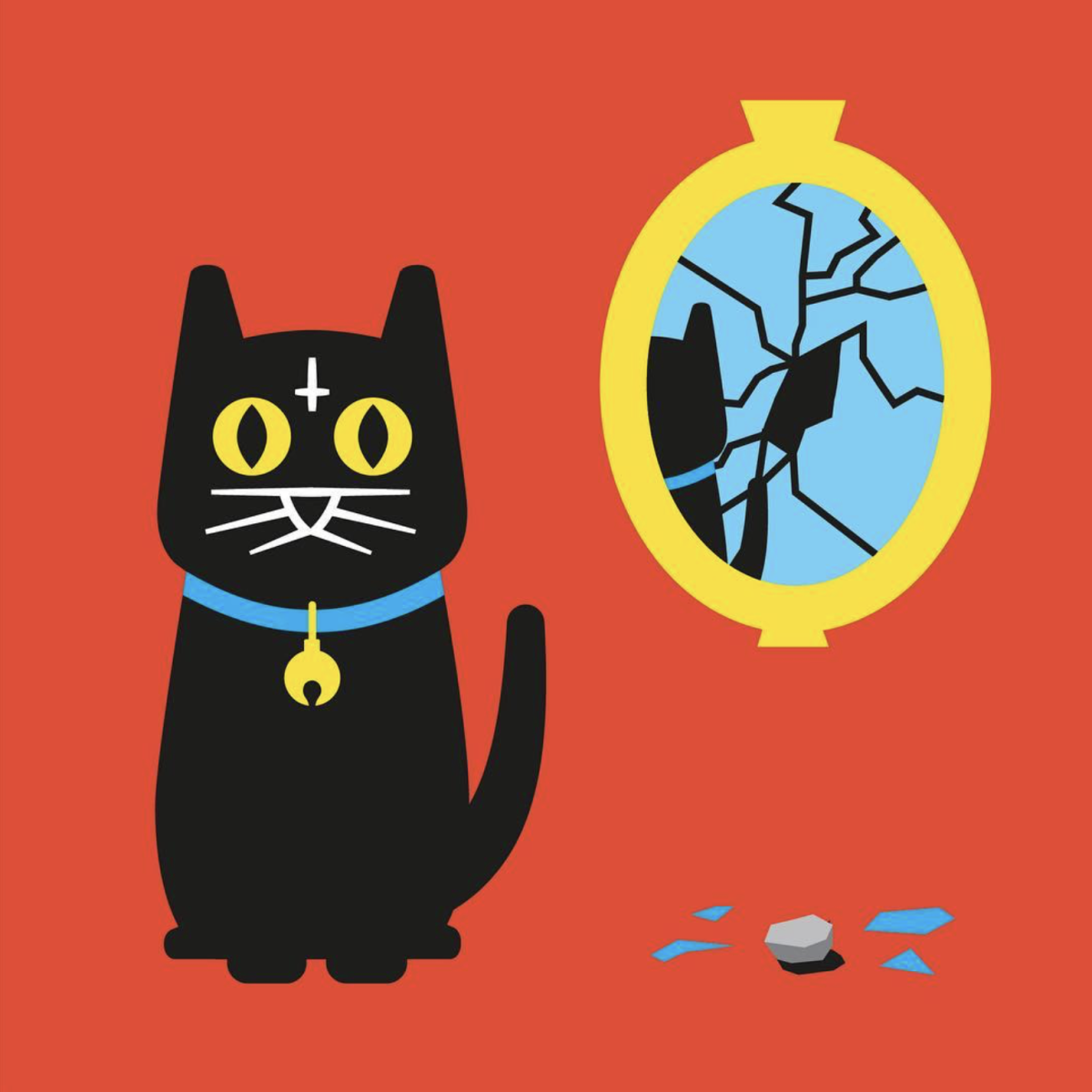If you are afraid to look into a broken mirror, encounter a black cat or walk under a ladder, that means you are a superstitious person. Superstitions have become a major part of people’s everyday lives, holding so much power over them.
Bad luck number 13 is one of the most popular superstitions. Friday 13th is considered the unlucky day, some buildings skipping the 13th floor and airports tend to exclude Gate 13. The origin of this superstition in Christianity uncovers that the number 13 is associated with Judas Iscariot who was one of the Twelve Apostles. He betrayed Jesus by disclosing his whereabouts for 30 pieces of silver and was the 13th guest who arrived at the Last Supper.
Black cat’s are also a popular superstition as it’s considered to bring bad luck if it crosses your path. In medieval Europe, people believed that witches and generally devilish creatures were able to take the form of black cats. This belief has been passed the fear of black cats to modern days. While this superstition is associated with bringing bad luck in the United States, it has the opposite effect in Germany, Britain, Japan and Ireland, as they believe that people who come across a black cat in their travels are lucky.
Superstitions and their meanings vary from place to place but the question as to why they are still believed across the world still remains. Having a bad day doesn’t equate to bad luck; it’s all about mindset. A lot of psychologists compare believing in superstitions to Obsessive-Compulsive Disorder (OCD). Engaging with superstitious behaviors gives a sense of control and helps reduce anxiety. It also promotes a positive mental attitude, as when people are unsure of an outcome, they find ways to control it, even if it’s only in their minds.
Superstitions have morphed from old traditions to spirituality. Religious beliefs, unexplainable “magic” things and horror stories have created and developed so many superstitions. Nowadays, most superstitions are spiritual and carry positive meaning.
Positive superstitions can be motivational and in a way are similar to affirmations. Randomly encountering a lucky number on the day of an exam may give people confidence. Knocking three times on a piece of wood prevents people from having something bad happen to them. Seeing a shooting star and making a wish helps keep people in-touch with their dreams.
Believing in superstitions is a personal decision. For some, they can be a mere coincidence, while others see it as everything happening for a reason.
“I think superstitions work in a way that something is going to happen only if you believe in it, just because you will wait for it and try to notice it everywhere. I personally don’t believe in them,” Polina Mosiychuk said, a junior at the University.
While a lot of people agree with this perspective, I feel that sometimes it’s healthy to let superstitions into our lives, allowing ourselves to feel in control and be a part of something bigger as if the universe is talking to us.






